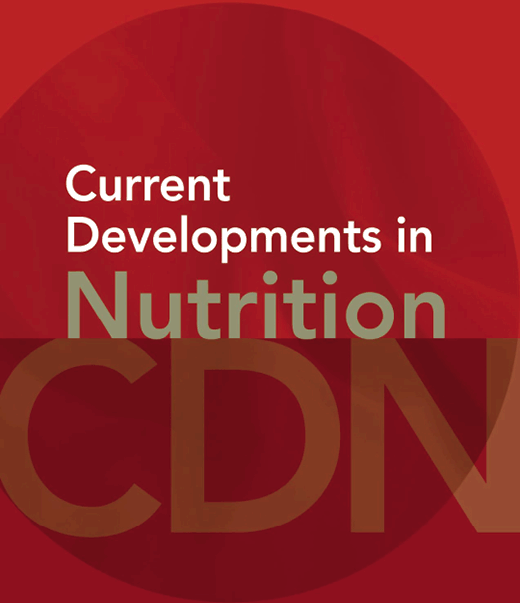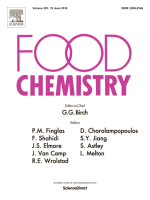Antiproliferation
How to submit an article:
- Registered users can submit any published journal article that has a unique DOI (Digital Object Identifier) name or link to Research Hub.
- For example, you can paste the full DOI link:
https://doi.org/10.1109/5.771073or just the DOI name:10.1109/5.771073into the field above and click submit. - The person who is first to submit a valid article to Research Hub will forever be credited for it, and every article submission earns you +6 Research Points.
Published research studies are articles that present the findings of original research that has undergone a peer-review process and has been made publicly available in scholarly journals, books or other media.

Citrus Peel Flavonoids as Potential Cancer Prevention Agents
2020 May Current Developments in Nutrition Nooshin Koolaji, Balakrishnan Shammugasamy, Aaron Schindeler, Qihan Dong, Fariba Dehghani, Peter Valtchev
Review Article CancerCitrus peel flavonoids exhibit a remarkable spectrum of biological activities including anti-inflammatory, anticancer, antiproliferation, antiangiogenesis, antioxidant, cell cycle regulation, and antimetastasis effects.

Comparative study on antiproliferation properties and cellular antioxidant activities of commonly consumed food legumes against nine human cancer cell lines
2012 Oct Food Chemistry Xu B, Chang SKC
Experimental Study Breast Cancer Black Soybean Cancer Adzuki Bean Antiproliferation Ovarian Cancer Stomach Cancer AnticancerAdzuki bean exhibited the strongest antiproliferative properties in a dose-dependent manner against all digestive system cancer cell lines, ovary cancer cell SK-OV-3 and breast cancer cell MCF-7 among all legumes tested.
Research insights are moderated by the Research Hub team and offer an at-a-glance overview of interesting research findings.

2020 Current Developments in Nutrition
Citrus peel flavonoids exhibit a remarkable spectrum of biological activities including anti-inflammatory, anticancer, antiproliferation, antiangiogenesis, antioxidant, cell cycle regulation, and antimetastasis effects.
Review Article Cancer
Citrus Peel Flavonoids as Potential Cancer Prevention Agents
Nooshin Koolaji, Balakrishnan Shammugasamy, Aaron Schindeler, Qihan Dong, Fariba Dehghani, Peter Valtchev

2012 Food Chemistry
Adzuki bean exhibited the strongest antiproliferative properties in a dose-dependent manner against all digestive system cancer cell lines, ovary cancer cell SK-OV-3 and breast cancer cell MCF-7 among all legumes tested.
Experimental Study Adzuki Bean Anticancer Black Soybean Breast Cancer Cancer
Comparative study on antiproliferation properties and cellular antioxidant activities of commonly consumed food legumes against nine human cancer cell lines
Xu B, Chang SKC
Review Articles
Review articles summarise and critically evaluate the current state of research on a specific topic or field by synthesising multiple primary research studies.
Clinical Trials
Clinical trials are research studies that involve people and are conducted to evaluate the safety and efficacy of new treatments or interventions, such as drugs, medical devices, or behavioural therapies.
Study Protocols
Published study protocols are detailed plans that outline the objectives, methodology, statistical analyses, and organisation of a research study that have been made publicly available for others to review and use as a reference.
Presentation Slides

Review Article
Citrus peel flavonoids exhibit a remarkable spectrum of biological activities including anti-inflammatory, anticancer, antiproliferation, antiangiogenesis, antioxidant, cell cycle regulation, and antimetastasis effects.
Nooshin Koolaji, Balakrishnan Shammugasamy, Aaron Schindeler, Qihan Dong, Fariba Dehghani, Peter Valtchev

Experimental Study
Adzuki bean exhibited the strongest antiproliferative properties in a dose-dependent manner against all digestive system cancer cell lines, ovary cancer cell SK-OV-3 and breast cancer cell MCF-7 among all legumes tested.
Xu B, Chang SKC
Executive Summary
Write an executive summary in the form of a blog article on the topic of "Research into Chinese medicine treatment for Antiproliferation" summarising the research below and using language that can be easily understood by patients and avoiding medical jargon using a professional and caring tone of voice.
Write an executive summary in the form of a blog article on the topic of "Researched Chinese medicine treatments for Antiproliferation" summarising the research below in an objective and easy to understand way, and using language that can be easily understood by patients. Group the article into Chinese medicine treatments first, followed by nutrition and other treatments. Avoid using medical jargon and use a professional and caring tone of voice.
Write me a concise but easy to understand executive summary on the topic of "Chinese medicine treatments for Antiproliferation" based on the following research that I will give you. Your summary should be 2 paragraphs long in Australian English spelling and include references to the studies.
A Review Article published in 2020 in the journal Current Developments in Nutrition found that Citrus peel flavonoids exhibit a remarkable spectrum of biological activities including anti-inflammatory, anticancer, antiproliferation, antiangiogenesis, antioxidant, cell cycle regulation, and antimetastasis effects. This review has summarized a selection of the key preclinical and clinical studies that show an anticancer utility for citrus-derived flavonoids. This property is linked to the chemical structures of flavonoids, which can dramatically affect a range of molecular and cellular mechanisms for inhibiting cancer initiation and progression. Overall, citrus flavonoids act not only as free radical scavengers but also as modulators of several key molecular events implicated in cell survival and apoptosis.
A Experimental Study published in 2012 in the journal Food Chemistry found that Adzuki bean exhibited the strongest antiproliferative properties in a dose-dependent manner against all digestive system cancer cell lines, ovary cancer cell SK-OV-3 and breast cancer cell MCF-7 among all legumes tested. This research involved comparing the health-promoting effects of various food legumes. The Cellular Antioxidant Activity (CAA) was assessed using a fluorescence microplate reader and in vitro animal cell cultivation. The antiproliferative properties against cancer cells were evaluated through the MTT method in an in vitro cell culture system. Additionally, the study quantified phytochemicals (total phenolic, procyanidin, saponin, and phytic acid) and chemical antioxidant activities (DPPH free radical scavenging activity, oxygen radical absorbing capacity, peroxyl radical scavenging capacity). The results indicated significant variations in phytochemical and antioxidant activities among different legumes. Notably, adzuki bean demonstrated the strongest dose-dependent antiproliferative effects against various cancer cell lines, including those from the digestive system, ovary, and breast. Meanwhile, black soybean showed the highest levels of saponin, phytic acid, and the strongest cellular antioxidant activities. These findings suggest that food legumes, particularly adzuki beans and black soybeans, are promising as natural antioxidants for health promotion and cancer prevention.
Moderation Tools
Topic
Sign In
Users not signed in are limited to viewing the 5 most recent items of content.
Citrus peels are rich in polyphenolic compounds, which are secondary plant metabolites with diverse and essential biological functions — 23 Sep 2021